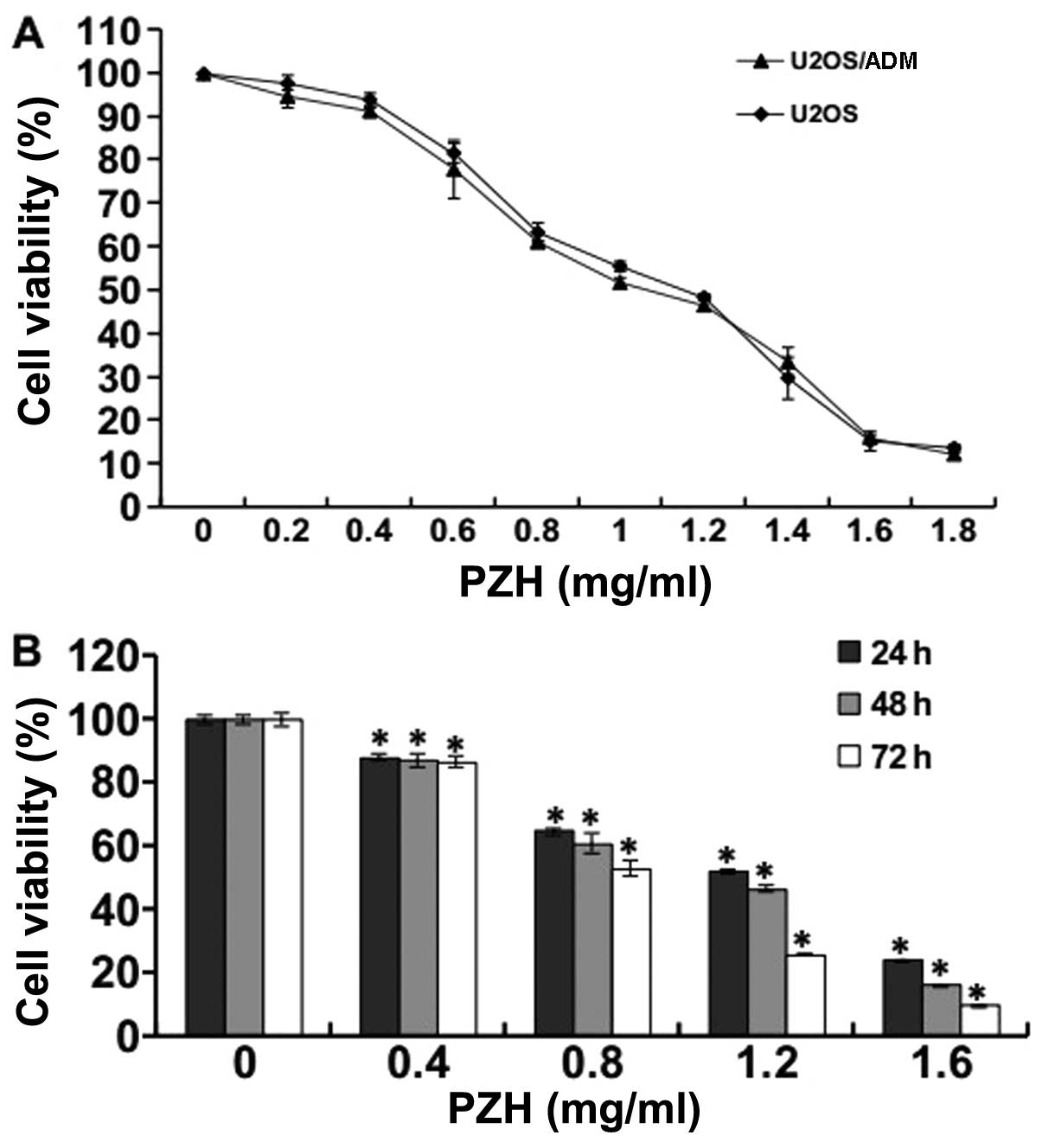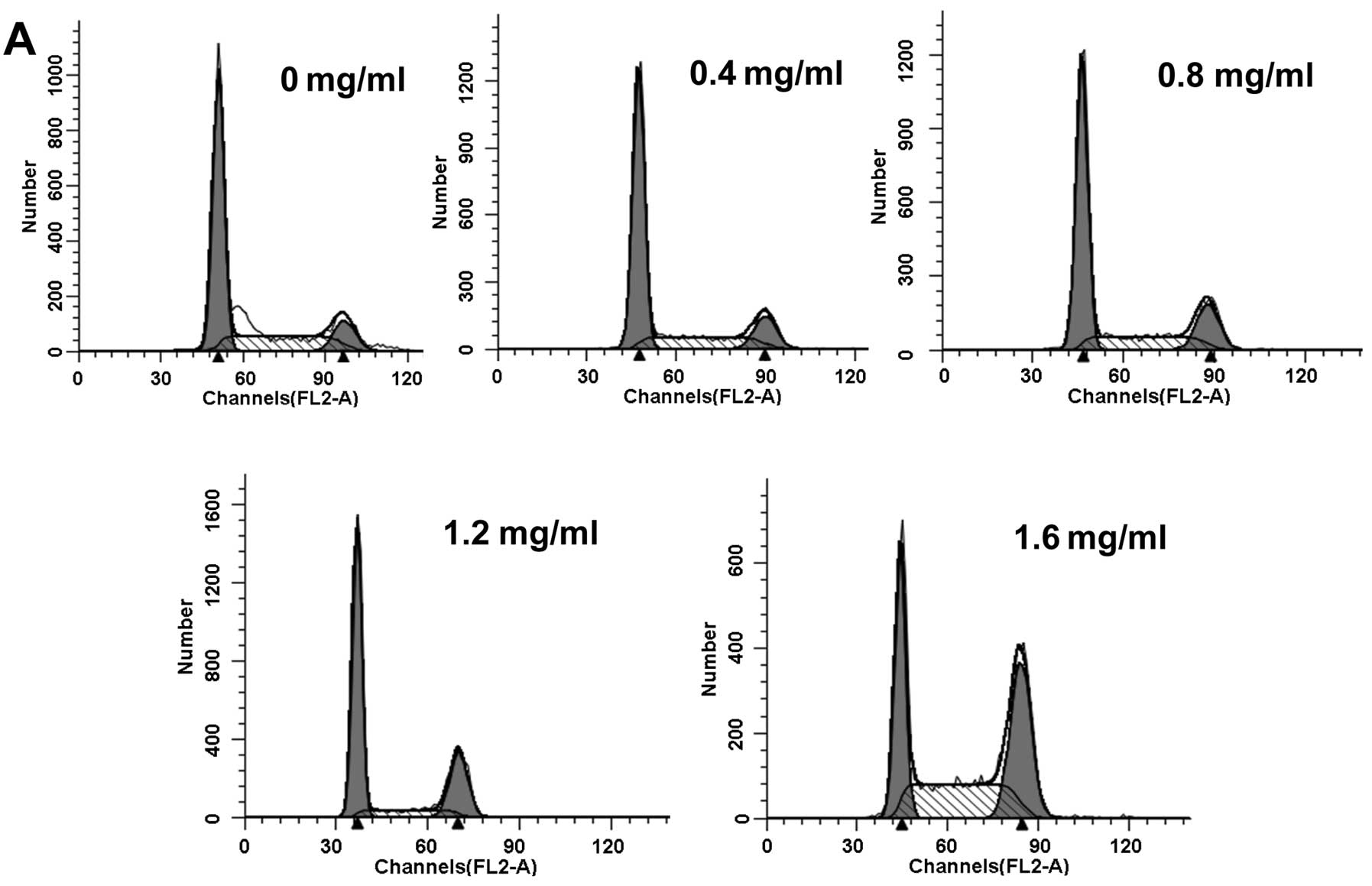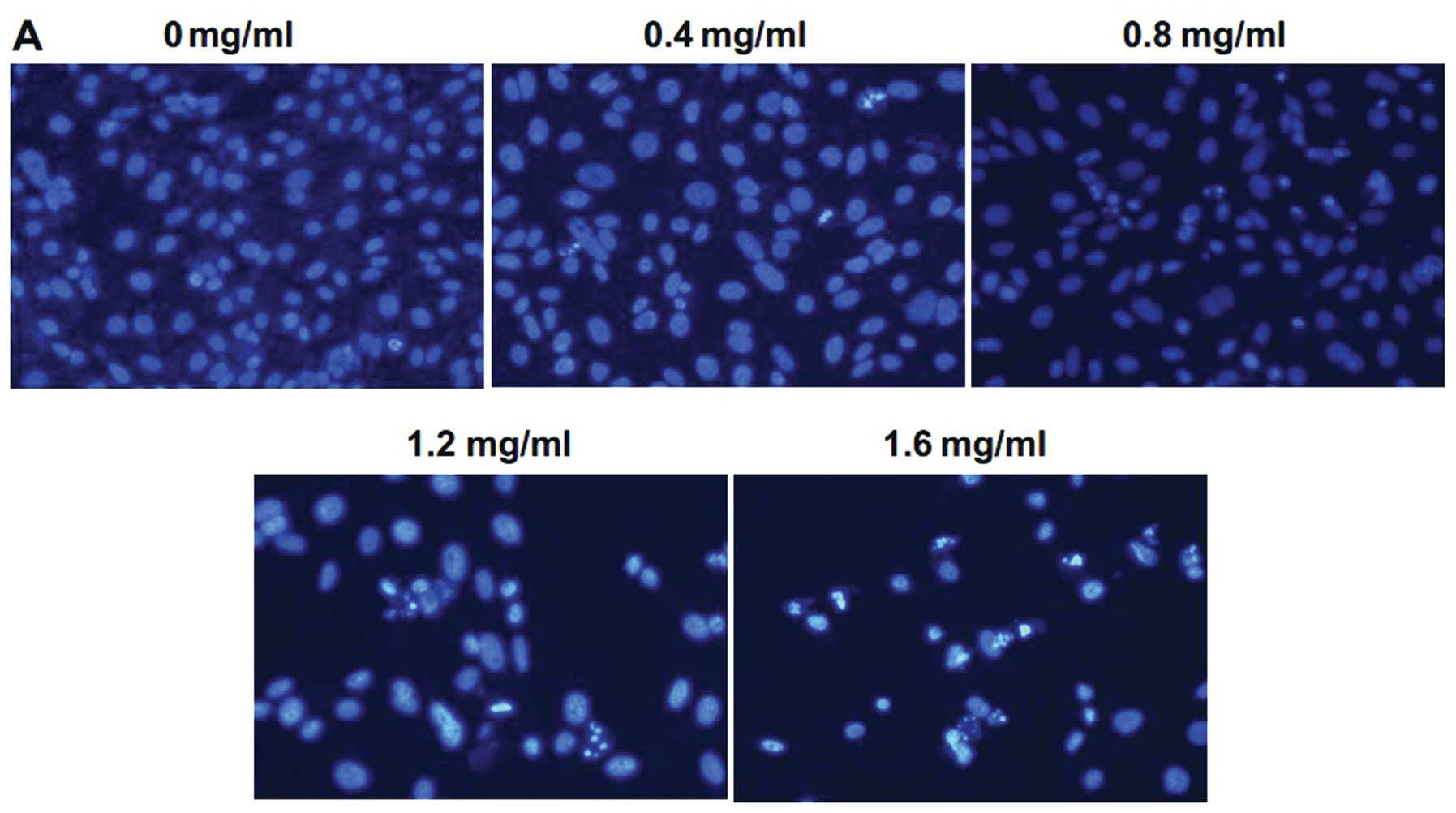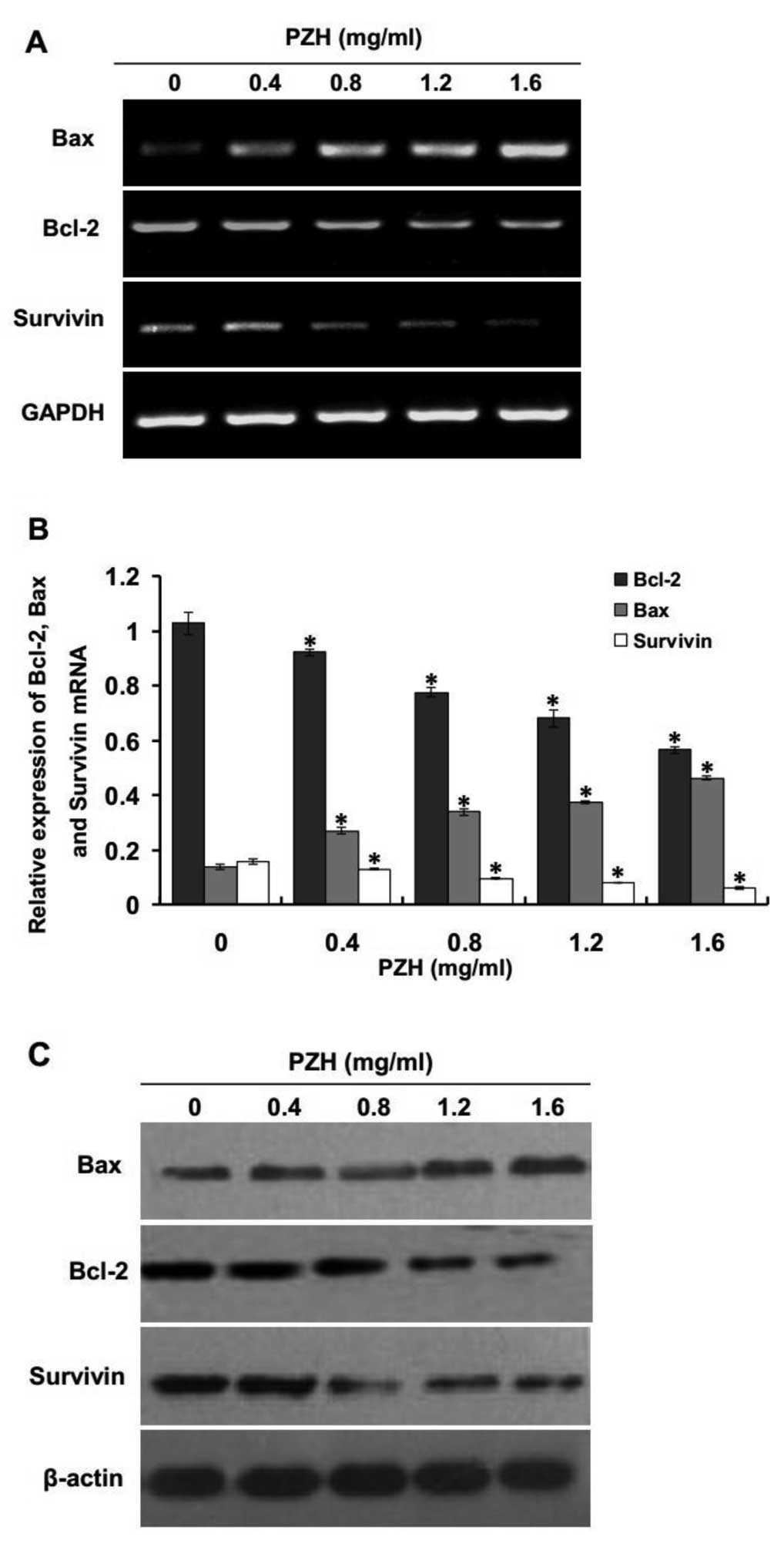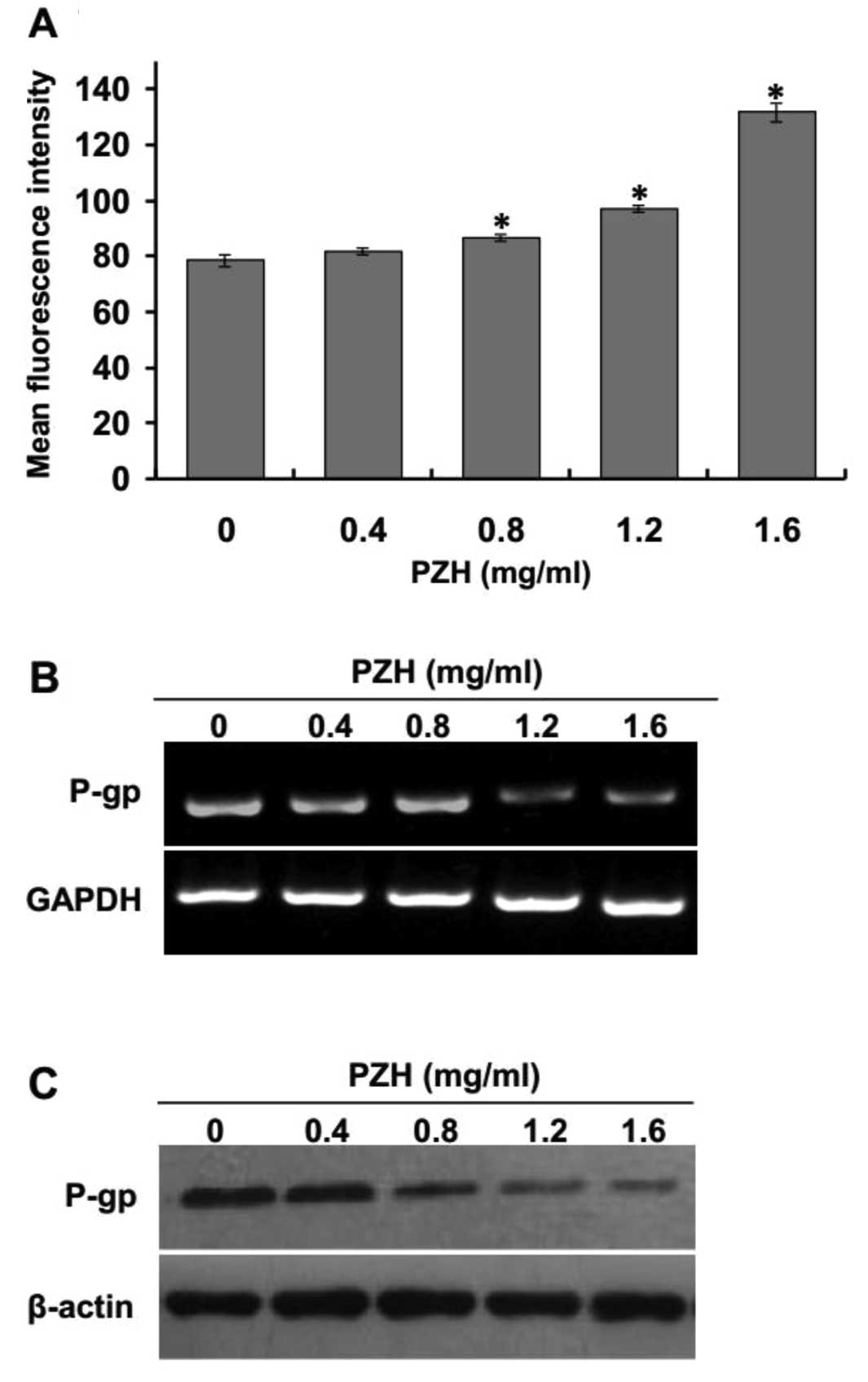|
1
|
Mirabello L, Troisi RJ and Savage SA:
Osteosarcoma incidence and survival rates from 1973 to 2004: data
from the Surveillance, Epidemiology, and End Results Program.
Cancer. 115:1531–1543. 2009. View Article : Google Scholar : PubMed/NCBI
|
|
2
|
Ottaviani G and Jaffe N: The epidemiology
of osteosarcoma. Cancer Treat Res. 152:3–13. 2009. View Article : Google Scholar
|
|
3
|
Jaffe N, Puri A and Gelderblom H:
Osteosarcoma: evolution of treatment paradigms. Sarcoma.
2013:2035312013. View Article : Google Scholar : PubMed/NCBI
|
|
4
|
Rajani R and Gibbs CP: Treatment of bone
tumors. Surg Pathol Clin. 5:301–318. 2012. View Article : Google Scholar : PubMed/NCBI
|
|
5
|
Schwartz CL, Gorlick R, Teot L, et al:
Multiple drug resistance in osteogenic sarcoma: INT0133 from the
Children's Oncology Group. J Clin Oncol. 25:2057–2062. 2007.
View Article : Google Scholar : PubMed/NCBI
|
|
6
|
Chou AJ and Gorlick R: Chemotherapy
resistance in osteosarcoma: current challenges and future
directions. Expert Rev Anticancer Ther. 6:1075–1085. 2006.
View Article : Google Scholar : PubMed/NCBI
|
|
7
|
Saha SK and Khuda-Bukhsh AR: Molecular
approaches towards development of purified natural products and
their structurally known derivatives as efficient anti-cancer
drugs: current trends. Eur J Pharmacol. 714:239–248. 2013.
View Article : Google Scholar
|
|
8
|
Newman DJ and Cragg GM: Natural products
as sources of new drugs over the 30 years from 1981 to 2010. J Nat
Prod. 75:311–335. 2012.PubMed/NCBI
|
|
9
|
Meng QX, Roubin RH and Hanrahan JR:
Ethnopharmacological and bioactivity guided investigation of five
TCM anticancer herbs. J Ethnopharmacol. 148:229–238. 2013.
View Article : Google Scholar : PubMed/NCBI
|
|
10
|
Jia L, Ma S, Hou X, et al: The synergistic
effects of traditional Chinese herbs and radiotherapy for cancer
treatment. Oncol Lett. 5:1439–1447. 2013.PubMed/NCBI
|
|
11
|
Wu G, Chu J, Huang Z, et al: Xiao Jin
Wan, a traditional Chinese herbal formula, inhibits
proliferation via arresting cell cycle progression at the G2/M
phase and promoting apoptosis via activating the
mitochondrial-dependent pathway in U-2OS human osteosarcoma cells.
Int J Oncol. 42:1070–1080. 2013.
|
|
12
|
Deng S, Hu B, An HM, et al:
Teng-Long-Bu-Zhong-Tang, a Chinese herbal formula, enhances
anticancer effects of 5-fluorouracil in CT26 colon carcinoma. BMC
Complement Altern Med. 13:1282013. View Article : Google Scholar : PubMed/NCBI
|
|
13
|
Xu M, Sheng LH, Zhu XH, Zeng SB and Zhang
GJ: Reversal effect of Stephania tetrandra-containing Chinese herb
formula SENL on multidrug resistance in lung cancer cell line
SW1573/2R120. Am J Chin Med. 38:401–413. 2010. View Article : Google Scholar : PubMed/NCBI
|
|
14
|
Yang L, Wei DD, Chen Z, Wang JS and Kong
LY: Reversal effects of traditional Chinese herbs on multidrug
resistance in cancer cells. Nat Prod Res. 25:1885–1889. 2011.
View Article : Google Scholar : PubMed/NCBI
|
|
15
|
Chinese Pharmacopoeia Commission.
Pharmacopoeia of the Peoples Republic of China. Chinese Med Sci
Technol Press; 1. pp. 573–575. 2010
|
|
16
|
Zhao SL and Pan J: A clinical trial of
combined use of Pien Tze Huang and chemotherapy in the treatment of
primary liver cancer. Med World. 9:40–51. 2006.
|
|
17
|
Xu YY and Yu EX: Clinical analysis of the
effect of Pien Tze Huang in treatment of 42 patients with moderate
or advanced liver cancer. Shanghai J Tradit Chin Med. 12:4–5.
1994.
|
|
18
|
Zhuang Q, Hong F, Shen A, et al: Pien Tze
Huang inhibits tumor cell proliferation and promotes apoptosis via
suppressing the STAT3 pathway in a colorectal cancer mouse model.
Int J Oncol. 40:1569–1574. 2012.PubMed/NCBI
|
|
19
|
Shen AL, Hong F, Liu LY, Lin JM, Zhuang
QC, Hong ZF and Peng J: Effects of Pien Tze Huang on angiogenesis
in vivo and in vitro. Chin J Integr Med. 18:431–436. 2012.
View Article : Google Scholar : PubMed/NCBI
|
|
20
|
Zhang L, Yu B and Lin JH: Apoptosis
induction of traditional Chinese herb Pianzihuang in human
osteosarcoma U-2OS cells. Zhongguo Gu Shang. 22:265–268. 2009.(In
Chinese).
|
|
21
|
Zhang L, Zeng QQ and Lin JH: Inhibitory
effect of human P27KIP1 gene AVV virus combining with Chinese herb
Pien Tze Huang on human osteosarcoma transplant mice model. China J
TCM Pharm. 24:511–514. 2009.
|
|
22
|
Zhang Y, Wang QH, Zhang L, Niu SS and Liu
Y: Effects of Pien Tze Huang on the cell cycle of human osteocarcom
U2OS cells. J Jiangxi Univ TCM. 24:19–21. 2012.
|
|
23
|
Fu Y, Yang DH and Zhang L: Effects of Pien
Tze Huang on the migration and invasion of osteosarcoma MG63 cell.
China J TCM Pharm. 28:1577–1580. 2013.
|
|
24
|
Wu X, Cai ZD, Lou LM and Zhu YB:
Expressions of p53, c-myc, Bcl-2 and apoptotic index in human
osteosarcoma and their correlations with prognosis of patients.
Cancer Epidemiol. 36:212–216. 2012. View Article : Google Scholar : PubMed/NCBI
|
|
25
|
Wesarg E, Hoffarth S, Wiewrodt R, Kröll M,
Biesterfeld S, Huber C and Schuler M: Targeting BCL-2 family
proteins to overcome drug resistance in non-small cell lung cancer.
Int J Cancer. 121:2387–2394. 2007. View Article : Google Scholar : PubMed/NCBI
|
|
26
|
Zhao Y, Zhang GL, Zeng BF, Wu XS, Gao TT
and Oda Y: Enhanced chemosensitivity of drug-resistant osteosarcoma
cells by lentivirus-mediated Bcl-2 silencing. Biochem
Biophys Res Commun. 390:642–647. 2009. View Article : Google Scholar : PubMed/NCBI
|
|
27
|
Shoeneman JK, Ehrhart EJ III, Eickhoff JC,
Charles JB, Powers BE and Thamm DH: Expression and function of
survivin in canine osteosarcoma. Cancer Res. 72:249–259. 2012.
View Article : Google Scholar : PubMed/NCBI
|
|
28
|
Serra M, Scotlandi K, Reverter-Branchat G,
et al: Value of P-glycoprotein and clinicopathologic factors as the
basis for new treatment strategies in high-grade osteosarcoma of
the extremities. J Clin Oncol. 21:536–542. 2003. View Article : Google Scholar : PubMed/NCBI
|
|
29
|
Gomes CM, van Paassen H, Romeo S, et al:
Multidrug resistance mediated by ABC transporters in osteosarcoma
cell lines: mRNA analysis and functional radiotracer studies. Nucl
Med Biol. 33:831–840. 2006. View Article : Google Scholar : PubMed/NCBI
|
|
30
|
Johnstone RW, Ruefli AA, Tainton KM and
Smyth MJ: A role for P-glycoprotein in regulating cell death. Leuk
Lymphoma. 38:1–11. 2000.PubMed/NCBI
|
|
31
|
Zhang Y, Liu JN, Wang QH, Liu Y and Zhang
L: Comparison of characteristics of two adriamycin resistant human
osteosarcoma U2OS cell lines. Acta Acad Med Weifang. 34:336–339.
2012.
|
|
32
|
Shen M, Chan TH and Dou QP: Targeting
tumor ubiquitin-proteasome pathway with polyphenols for
chemosensitization. Anticancer Agents Med Chem. 12:891–901. 2012.
View Article : Google Scholar : PubMed/NCBI
|
|
33
|
Milane L, Ganesh S, Shah S, Duan ZF and
Amiji M: Multi-modal strategies for overcoming tumor drug
resistance: hypoxia, the Warburg effect, stem cells, and
multifunctional nanotechnology. J Control Release. 155:237–247.
2011. View Article : Google Scholar : PubMed/NCBI
|
|
34
|
Xu Y and Li XJ: Multi-target therapeutics
and new drug discovery. Yao Xue Xue Bao. 44:226–230. 2009.(In
Chinese).
|
|
35
|
Ji T, Lin C, Krill LS, Eskander R, Guo Y,
Zi X and Hoang BH: Flavokawain B, a kava chalcone, inhibits growth
of human osteosarcoma cells through G2/M cell cycle
arrest and apoptosis. Mol Cancer. 12:552013. View Article : Google Scholar : PubMed/NCBI
|
|
36
|
Zheng SE, Xiong S, Lin F, et al:
Pirarubicin inhibits multidrug-resistant osteosarcoma cell
proliferation through induction of G2/M phase cell cycle arrest.
Acta Pharmacol Sin. 33:832–838. 2012. View Article : Google Scholar : PubMed/NCBI
|
|
37
|
Mellor HR and Callaghan R: Resistance to
chemotherapy in cancer: a complex and integrated cellular response.
Pharmacology. 81:275–300. 2008. View Article : Google Scholar : PubMed/NCBI
|
|
38
|
Friedrich K, Wieder T, Von Haefen C, et
al: Overexpression of caspase-3 restores sensitivity for
drug-induced apoptosis in breast cancer cell lines with acquired
drug resistance. Oncogene. 20:2749–2760. 2001. View Article : Google Scholar : PubMed/NCBI
|















